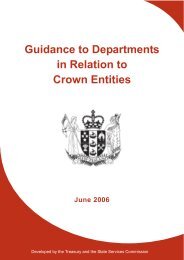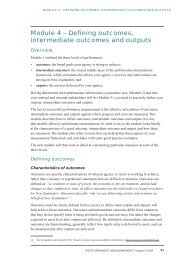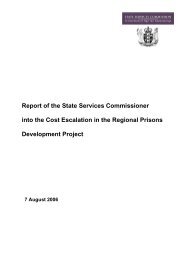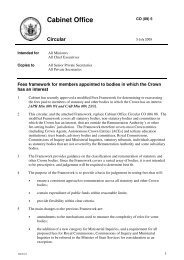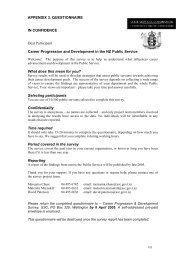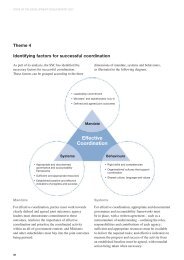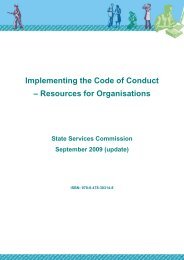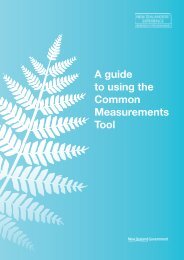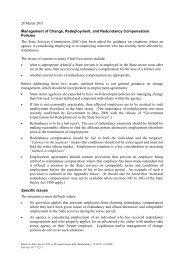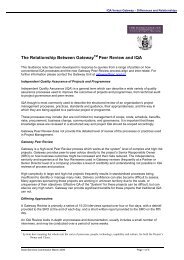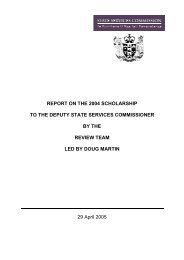Better Public Services Advisory Group Report - November 2011
Better Public Services Advisory Group Report - November 2011
Better Public Services Advisory Group Report - November 2011
You also want an ePaper? Increase the reach of your titles
YUMPU automatically turns print PDFs into web optimized ePapers that Google loves.
Chapter 2: Current problems and future<br />
challenges<br />
2.1 The next 20 years will be more challenging for New Zealand’s state services than the 20<br />
years just gone. Building from the issues set out in Chapter 1, this chapter identifies<br />
current barriers to meeting the challenges ahead. It provides the basis for the proposals<br />
for change set out in Chapters 3 to 5.<br />
2.2 In the judgement of the <strong>Advisory</strong> <strong>Group</strong>, New Zealand’s state services are not well<br />
geared up to meet many current challenges, let alone future ones. Several significant<br />
barriers stand in the way of attaining the level of service provision, flexibility of response<br />
and technological platforms needed to deliver really world-class public services.<br />
Weak customer focus<br />
2.3 State services that understand customer needs well are more likely to do the things that<br />
matter most to their clients, in ways that make sense to users. This potential is not<br />
currently being fully tapped. Feedback mechanisms are not well developed, and it is not<br />
easy to reshape service delivery models drawing on new technologies or alternative<br />
modes of supply. Information on state services in New Zealand is not made available<br />
routinely, and citizens and businesses find government confusing and costly to deal with.<br />
2.4 The impact of not listening and responding well to citizens and businesses is two-fold:<br />
less satisfied New Zealanders, and missed opportunities for providing better or existing<br />
services at lower cost. The state sector also tends to do too much itself, leaning towards<br />
the status quo and not always looking for opportunities where others could provide the<br />
same – or better – services at better value. The impact of these missed opportunities will<br />
increase as fiscal pressures rise.<br />
Lack of coordination<br />
2.5 Running individual agencies well is important, but should not get in the way of progress<br />
on the complex, long term social and economic issues. The New Zealand public<br />
management model is founded on clear accountability: agencies have been structured to<br />
have clear and non-conflicting objectives. Chief executives have a much higher degree<br />
of operational autonomy than their counterparts in other countries. This accountability<br />
model has been one of the most lauded features of previous state sector reforms 15 .<br />
15<br />
Refer Secretariat Issues Paper for comment on the 1980s state sector reforms: The Core Elements of New<br />
Zealand's <strong>Public</strong> Sector Management Model as Originally Formulated.<br />
19



